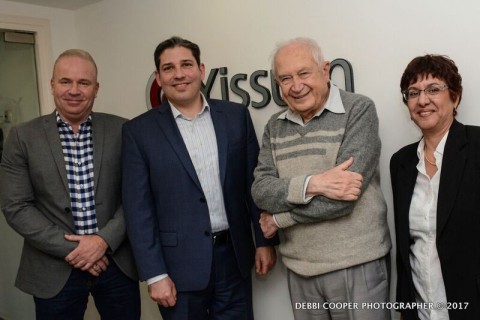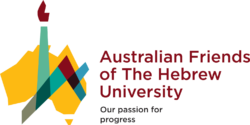February 22, 2017
LOS ANGELES & JERUSALEM–(BUSINESS WIRE) -Phytecs Inc., a biotechnology company exploring innovative research into and potential treatments targeting the endocannabinoid system (ECS), together with Yissum Research Development Company, the technology-transfer company of the Hebrew University of Jerusalem, announced a new partnership with two aims: to synthesize novel compounds that show increased efficacy over existing phytocannabinoids in targeting specific elements of the ECS, a key homeostatic regulator of the human body; and to continue testing semi-synthetic, patented fluorinated cannabidiol (F-CBD) compounds developed under a previous licensing agreement, which was signed with Yissum, University of São Paulo (USP) and Federal University of Rio Grande Do Sul (UFRGS). Work conducted under the new partnership will complement Phytecs’ existing research into therapeutic applications for various phytocannabinoids and terpenoids sourced from cannabis, and combinations thereof.

“New cannabinoid research under the Phytecs-Yissum partnership promises to yield significant commercial opportunities and solutions for patients in the coming decade, not just in well-known areas such as treatment-resistant childhood epilepsy and pain relief, but in other disorders across a wide range of health areas including dermatology and mental health.”
A Hebrew University research team led by Professor Raphael Mechoulam, MS, PhD, working closely with Tamás Bíró, MD, PhD, DSc, director of applied research for Phytecs, and other members of the Phytecs Scientific Advisory Board, will explore new therapeutic opportunities offered by these compounds for certain health conditions, with an initial focus on mental and immune disorders. The new Phytecs-Yissum partnership will also build on previous licenses between the two organizations that led to compounds currently under investigation as treatments for central nervous system (CNS) and skin disorders.
Financial details of the partnership were not disclosed.
Professor Mechoulam, whose pioneering work during the past half-century has supported a global expansion of research into phytocannabinoids from cannabis and other plants, said: “I am gratified to see the growing understanding among physicians and researchers of the body’s native ECS and its role in homeostatic regulation. Since ECS dysregulation is implicated in multiple pathological conditions, data suggests that modulating the ECS may have benefits across a huge range of human diseases.
“My team at Hebrew University shares confidence with Yissum and Phytecs that our work will identify compounds with even greater therapeutic promise than the naturally occurring cannabis compounds (e.g. THC or CBD) my lab identified decades ago. We are particularly excited to extend our already productive partnership with testing on the patented F-CBD compounds licensed exclusively by Phytecs.”
Dr. Bíró said: “Data from preclinical work previously conducted by Phytecs in partnership with Yissum is already encouraging in assays for epilepsy, schizophrenia, anxiety and depression, among other areas. For example, we are hopeful that F-CBD compounds, which exhibit greater efficacies and potencies than CBD, will one day deliver the same or greater benefits to patients with CNS disorders as may be possible with CBD, at lower therapeutic doses. We are thrilled to be able to build upon this in close collaboration with Professor Mechoulam as we apply his and his team’s deep expertise.”
Gary Hiller, president and COO of Phytecs, said: “We are excited to be building upon the data generated from our work with F-CBD by expanding our research slate, creating a pipeline of semi-synthetics and identifying new and more effective compounds – as well as putting together a world-leading team to translate ECS knowledge into value for patients. This pipeline correlates perfectly with our continued work on phytocannabinoids and reflects our focus on developing effective, efficient, accessible ECS therapeutic agents, regardless of their source.”
Dr. Shoshi Keynan, vice president of healthcare business development at Yissum, said: “New cannabinoid research under the Phytecs-Yissum partnership promises to yield significant commercial opportunities and solutions for patients in the coming decade, not just in well-known areas such as treatment-resistant childhood epilepsy and pain relief, but in other disorders across a wide range of health areas including dermatology and mental health.”
